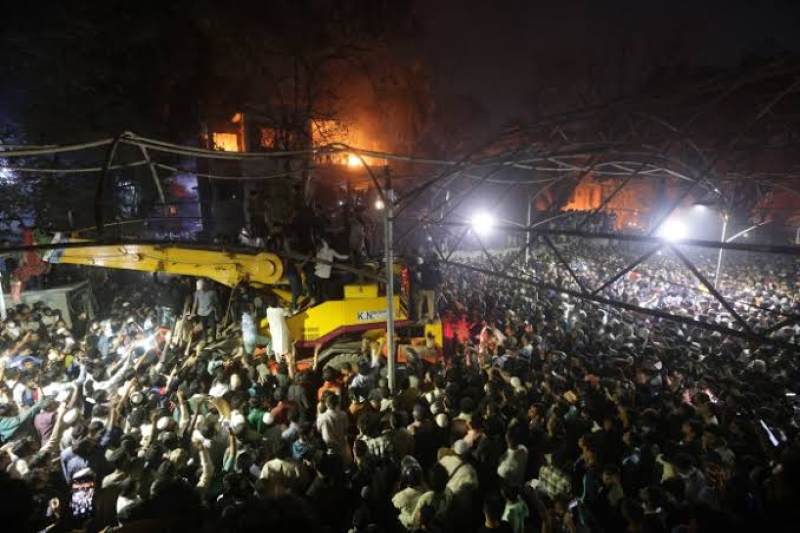- Power generation at Payra Thermal Power Plant 1st unit starts after a month |
- Irregularities, injustice will no longer be accepted in politics: Jamaat Ameer |
- 2 arrested in Jhenaidah for allegedly selling madrasa student |
- Koko’s wife campaigns for Tarique in Dhaka-17 |
- Bangladeshi Expats Cast 4.58 Lakh Postal Votes |
Vandalism at Dhanmondi-32 an Outburst of Public Anger: Govt

The interim government has described the vandalism at the historic Dhanmondi-32 residence as an outburst of public fury, triggered by Sheikh Hasina’s provocative remarks against the July uprising.
In a statement issued today by the Chief Adviser’s Press Wing, the government termed the incident “unintended and unexpected,” attributing the public outrage to Sheikh Hasina’s comments from India, where she is currently staying to evade arrest.
The statement noted that no attack or destruction had taken place at Dhanmondi-32 in the past six months. However, last night's incident was fueled by two key reasons.
Firstly, deposed leader Sheikh Hasina allegedly insulted and undermined the martyrs of the July uprising. By making what the government called "irrelevant, vulgar, and hateful remarks" about those who lost their lives, she disrespected their sacrifice.
Secondly, despite fleeing the mass movement against her, Sheikh Hasina continues to speak in the same tone as she did while in power—accused of corruption, terrorism, and oppressive rule. The government alleged that she was issuing threats against the July uprising and those who participated in the movement.
“Sheikh Hasina has sought to destabilise the country,” the statement said, adding that her inflammatory rhetoric had deepened wounds still fresh in the public’s mind.
The statement further mentioned that law enforcement agencies are on high alert to ensure the safety of people and property, making all-out efforts to restore order.
"If Sheikh Hasina, a fugitive accused of crimes against humanity, refrains from making such incendiary remarks, further unrest can be avoided," the statement read.
The government also expressed hope that India would not allow its territory to be used for activities that could fuel instability in Bangladesh and urged New Delhi to prevent Sheikh Hasina from making disruptive statements.
Reaffirming its commitment to justice, the government stated that the trial of those involved in the July massacre was progressing at full speed and that the perpetrators would face due punishment.
“The interim government will explore legal measures against individuals engaged in provocative actions,” the statement concluded.

